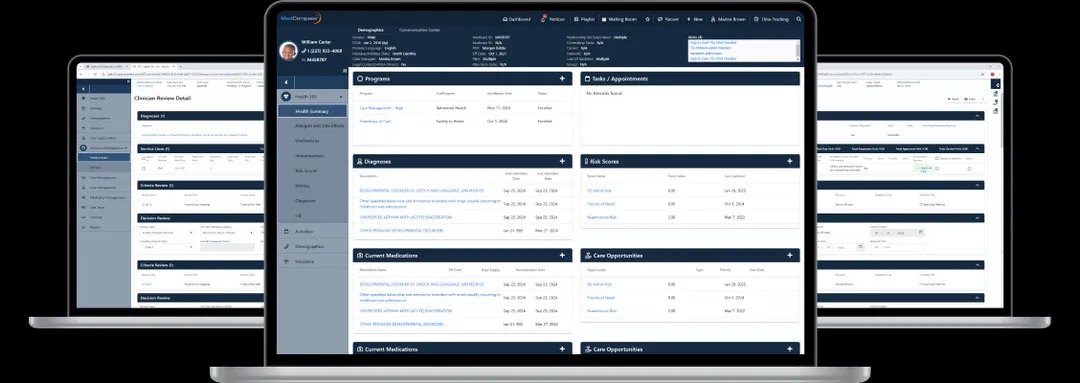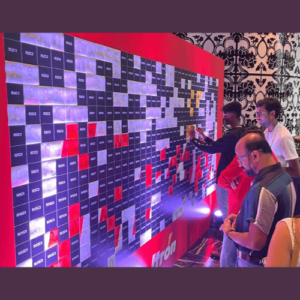Transforming Healthcare with Hospital Management Software
In today’s fast-paced healthcare ecosystem, hospitals and clinics are under tremendous pressure to balance patient care, administrative efficiency, and compliance requirements. Managing these critical aspects without advanced digital tools can be overwhelming. This is where hospital management software steps in as a game-changer, streamlining processes and ensuring better outcomes for patients as well as healthcare providers.
With the integration of electronic medical records (EMRs), cloud-based data storage, and AI-driven analytics, modern hospital systems are rapidly evolving. Choosing the right platform has become a key decision for hospitals in India, where both small clinics and large healthcare networks are embracing digital transformation.
What is Hospital Management Software?
Hospital management software (HMS) is an integrated solution designed to handle the clinical, financial, and administrative aspects of a healthcare facility. It centralizes operations like patient registration, billing, doctor scheduling, inventory control, and laboratory management. More advanced systems also integrate electronic health records (EHR) and electronic medical records (EMR), enabling seamless communication among departments.
By digitizing everyday operations, HMS eliminates manual errors, improves data security, and enhances overall efficiency. For hospitals in India, where the volume of patients is often high, this software ensures smoother workflows and better patient experiences.
Why Hospitals in India Need Advanced Digital Systems
The Indian healthcare industry has been witnessing rapid growth, but challenges such as overcrowded facilities, limited staff, and rising patient expectations continue to strain resources. Implementing hospital management software offers several advantages:
- Improved Patient Care
With digital patient records, doctors can instantly access medical histories, prescriptions, and test results, leading to faster and more accurate diagnoses. - Operational Efficiency
Automated scheduling, billing, and reporting save significant time for administrative staff, allowing them to focus more on patient support. - Regulatory Compliance
Hospitals must comply with national health standards and patient privacy laws. HMS ensures proper documentation and secure storage of sensitive data. - Cost Savings
By optimizing resource allocation, reducing paperwork, and minimizing duplication of tests, hospitals can significantly cut operational costs. - Scalability
Whether for a small clinic or a multi-specialty hospital chain, these systems can be scaled to match the facility’s size and future needs.
Role of EMR in Modern Healthcare
Electronic Medical Records (EMRs) are a vital component of hospital management software. EMRs contain digital versions of patients’ charts, capturing data such as diagnoses, treatment plans, medications, and lab results. Unlike paper records, EMRs can be shared across departments instantly, ensuring coordinated care.
In India, where patient movement between specialists and diagnostic centers is common, EMRs help prevent information silos. They provide a unified patient view that enhances clinical decision-making and reduces medical errors.
When selecting the best EMR software India, hospitals must consider factors like ease of use, interoperability with existing systems, compliance with healthcare standards, and adaptability to local workflows.
Key Features of Hospital Management Software
A robust HMS comes equipped with a wide range of features tailored to different stakeholders in a hospital environment. Here are the most impactful ones:
1. Patient Registration and Scheduling
Patients can register online, book appointments, and even receive reminders. This reduces waiting times and improves patient satisfaction.
2. Billing and Financial Management
The system automates billing processes, integrates insurance claims, and provides real-time financial reports for better decision-making.
3. Electronic Health Records (EHR) and EMRs
Comprehensive medical histories, prescriptions, and lab reports are stored digitally for easy access. This supports accurate diagnoses and treatment continuity.
4. Laboratory and Radiology Integration
Diagnostic reports can be uploaded directly into patient profiles, ensuring doctors have immediate access to results without delays.
5. Pharmacy Management
Automated inventory control and prescription management streamline pharmacy operations and prevent stock shortages.
6. Staff and Resource Management
HMS allows administrators to manage staff schedules, track workloads, and allocate resources effectively.
7. Data Security and Compliance
Patient confidentiality is critical. Modern HMS ensures data encryption, secure access, and compliance with national and international standards.
Benefits for Patients and Healthcare Providers
For Patients:
- Shorter wait times and easier appointment booking
- Access to digital prescriptions and reports
- Transparent billing and insurance claim tracking
- Better overall care experience
For Healthcare Providers:
- Centralized data access for doctors and staff
- Efficient administrative workflows
- Reduced errors in diagnosis and billing
- Improved communication between departments
Choosing the Best EMR Software in India
With multiple vendors in the market, selecting the right EMR software requires careful evaluation. Hospitals must look for:
- User-Friendly Interface
The system should be intuitive so that doctors, nurses, and administrative staff can adopt it quickly without extensive training. - Cloud Integration
Cloud-based systems ensure data is accessible from anywhere, promoting telemedicine and remote consultations. - Customization
Every hospital operates differently. The software should be flexible enough to adapt to unique workflows. - Data Analytics
Advanced EMR platforms offer AI-driven analytics that help in predicting patient needs and optimizing operations. - Interoperability
The EMR should integrate seamlessly with laboratory systems, pharmacies, and imaging centers.
By adopting advanced EMR solutions, Indian hospitals can provide world-class care while improving their operational resilience.
Digital Transformation with KareXpert Solutions
For hospitals looking to implement cutting-edge systems, KareXpert offers comprehensive solutions like the hospital management software platform. Designed for the Indian healthcare landscape, it combines ease of use, scalability, and advanced technology. KareXpert’s ecosystem integrates HMS with EMR/EHR, telemedicine, pharmacy management, and analytics tools to create a seamless digital hospital experience.
By adopting such platforms, hospitals not only upgrade their internal efficiency but also enhance patient trust, which is crucial in today’s competitive healthcare market.
The Future of Hospital Management in India
The future of healthcare in India is digital. From AI-powered diagnostics to predictive healthcare analytics, hospital management systems will continue to evolve. Government initiatives such as the Ayushman Bharat Digital Mission (ABDM) are also encouraging hospitals to digitize records and adopt interoperable systems.
In this environment, hospitals that invest in advanced HMS and EMR software will be better positioned to handle increasing patient loads, deliver personalized care, and stay compliant with evolving healthcare regulations.
Conclusion
The healthcare sector in India is at a turning point. Patients expect faster, safer, and more transparent services, while hospitals must manage growing demands with limited resources. Hospital management software, combined with the best EMR software in India, offers the perfect solution to meet these challenges.
By embracing digital tools, healthcare providers can transform their operations, enhance patient care, and create a future-ready hospital ecosystem. For Indian hospitals aiming to stay ahead, investing in comprehensive solutions like those from KareXpert is no longer optional—it’s essential.
Share this content:












Post Comment